There are many different nutrients that support thyroid function and thyroid hormone production. Using the right balance of nutrients can help improve thyroid function and balance hormones, whether you struggle with hypothyroidism, Hashimoto’s, hyperthyroidism, or Graves’.
Let’s dive in and look at the 10 essential nutrients for thyroid health.
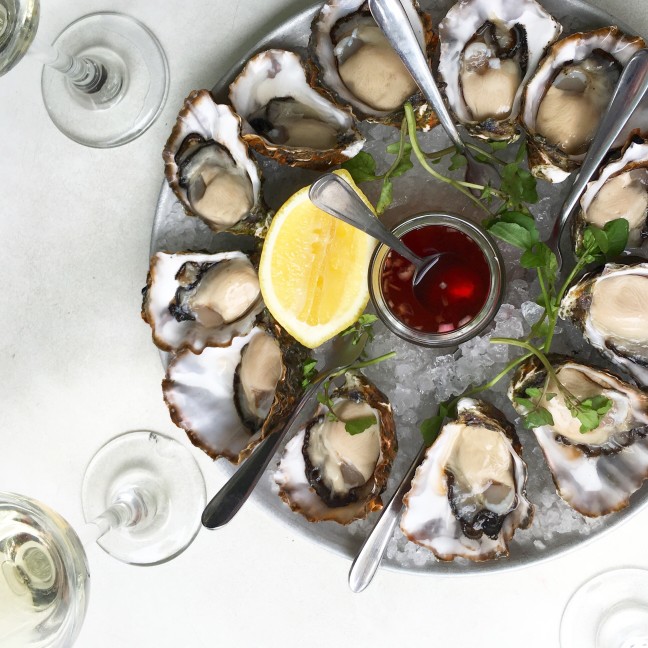
Zinc
Zinc is needed for TSH production and for the conversion of FT4 to FT3. It’s also needed to create proper amounts of stomach acid, which enables the body to utilize the nutrients in your food.
Zinc and stomach acid work synergistically together, meaning that you need stomach acid to make zinc, and you need zinc to make stomach acid. If you’re zinc deficient, it’s very possible that you’re eating in a stressed state and not producing enough stomach acid.
The RDA for zinc is 8-11mg for adults, depending on age and gender.
Best Food Sources of Zinc:
Pastured meats
Organic eggs
Cultured dairy
Oysters
Foods like soaked chickpeas, lentils and pumpkin seeds also contain zinc, but it’s very difficult to get enough daily zinc from these plant foods. I always recommend that my clients eat some pastured animal foods daily to get the recommended amount.
Recommended Zinc Supplementation:
Zinc Liver Chelate is a good choice. Remember, zinc and stomach acid work synergistically together, so if you find you’re continually deficient in zinc, ensure your body is making enough stomach acid.

Iodine
Iodine is present in every organ and tissue in the body. It’s not only necessary for proper thyroid hormone production, but it’s also needed for fetal development, the health of the salivary glands, proper immune system function, hormone balance, healthy breast tissue, the prostate, ovaries and skin.
If you don’t have enough iodine in the body, you cannot make enough thyroid hormones, in particular FT4, which can lead to hypothyroidism.
Additionally, iodine plays a significant role in the liver’s ability to convert FT4 to the active thyroid hormone FT3. When the body doesn’t convert enough FT4 to FT3, this can also lead to hypothroidism.
Iodine deficiency can also cause goiters, and contribute to thyroid cysts and nodules.
While the RDA is 200mcg, most thyroid experts believe this is too low. Many medical doctors who specialize in thyroid health, such as Guy Abraham, M.D. and David Brownstein, M.D., recommend amounts anywhere between 12.5 – 37.5 mg daily.
In our practice, we’ve found that doses closer to 600mcg – 6mg daily are well tolerated. However, it’s important to remember that we are all biochemically individual, so what works for one person doesn’t necessarily work for another.
The body doesn’t make iodine, so it’s essential to include it as part of your diet.
If you have elevated fT4 or fT3, then you should talk to your nutritionist about the right amount of iodine-rich foods that your body needs. Or, if you have Hashi’s and you’re concerned that it may cause negative symptoms, this article, and this video, will help clear things up for you.
Food Sources of Iodine:
- Sea vegetables, such as kelp, dulse, nori and wakame
- Wild seafood
- Unprocessed, organic dairy, such as raw milk, raw cream, cultured yogurt, etc.
- Pastured/organic eggs
Recommended Iodine Supplementation:
Iodomere and Promoline Iodine from Standard Process are two of my favorites. Iodomere contains less iodine than Promoline Iodine. Nascent Iodine is a good option as well and comes in liquid form. You can also add iodine to your diet with Dr. Cowan’s Sea Vegetables Powder.
If you feel you need supplementation, I always recommend consulting with a practitioner who is well-versed in nutrition to help you figure out the best dosage for your body.
 Tyrosine
Tyrosine
The thyroid combines tyrosine and iodine to make thyroid hormones, so it’s essential for proper T4, FT4, T3 and FT3 production. In fact, the “T” in the thyroid hormones stands for “tyrosine”.
Tyrosine is an amino acid that is naturally produced in the body from another amino acid called phenylalanine. The RDA for phenylalanine and tyrosine is 15mg per pound of body weight.
Best Food Sources of Tyrosine:
Pastured meats (beef, chicken, pork, lamb, etc.)
Pastured eggs
Raw dairy
Wild fish
Cultured yogurt
Soaked almonds and lima beans
Recommended Tyrosine Supplementation:
It’s very important that you only take tyrosine if you’re truly deficient, because it can cause negative effects if you have too much. I recommend the book The Mood Cure to read more about supplementing with various amino acids.
 Iron
Iron
The body needs iron to make TPO (thyroid peroxidase), which is then used to make the thyroid hormone FT4. When the body is deficient in iron, FT4 levels can drop, putting the body in a hypothyroid state.
You also need iron to convert FT4 to the active FT3, so low levels of iron can cause a decrease in FT3. This can lead to weight gain, low energy, etc.
It’s important to get iron-rich foods from animal sources daily. Yes, vegetables like spinach contain iron, but they aren’t the most bioavailable form, so it’s best to stick with heme sources of iron.
The RDA for iron is 8-18mg, depending on age and gender.
Best Food Sources of Heme Iron:
Liver
Pastured beef
Chicken
Game meats
Oysters
Pastured eggs
Recommended Iron Supplementation:
If you find that you are deficient in iron or have been diagnosed with anemia, often the issue isn’t too little iron in the diet, but too little stomach acid. Click here for more information. Taking a bunch of iron through food or supplements won’t solve the problem because the root issue is often that the body isn’t able to utilize the iron in food.

Selenium
Selenium is important for the conversion of FT4 to FT3 in the liver. It also helps to support the thyroid in making thyroid hormones. Studies have also shown that selenium can help reduce TPO antibodies and support the immune system.
The RDA for selenium is 55mcg for adults.
Best Food Sources of Selenium:
Brazil nuts
Tuna
Halibut
Sardines
Shrimp
Pastured beef
Liver
Chicken
Cottage cheese
Pastured eggs
Recommended Selenium Supplementation:
If you need a more therapeutic dose of selenium, Cataplex E is the one I use at my practice and that I trust.

Sulfur
Sulfur is important for thyroid hormone production because it supports the liver, which is where most of the FT4 in the body is converted to FT3.
There isn’t a specific RDA for sulfur, but your need for it can easily be met through diet.
Best Food Sources of Sulfur:
Pastured eggs
Cruciferous vegetables (these need to be cooked so they don’t inhibit the uptake of iodine)
Garlic
Onions
Raw dairy
Soaked legumes
Brussels sprouts
Recommended Sulfur Supplementation:
While there are some good sulfur supplements out there, I find it’s better to get sulfur from your foods. However, if you feel you need a therapeutic dose of sulfur to help with a particular issue, I recommend talking to your practitioner.

Vitamin A
Vitamin A is a very important fat-soluble vitamin for the thyroid. It helps balance the correct levels of thyroid hormones in the body, and is also needed for proper liver function (which plays a part in thyroid hormone balance).
It’s important to understand that Vitamin A (aka retinol) is only found in animal foods, NOT in vegetables. Vegetables contain betacarotene, which can be converted in the body to Vitamin A in small amounts, but your thyroid needs to be working optimally in order to do so.
If you have thyroid disease, your body is going to have a really hard time taking betacarotene and transferring it over into Vitamin A or retinol, so it is very important that you are eating animal foods that contain Vitamin A every single day.
Others conditions that interfere with the conversion of betacarotene in plant foods to Vitamin A include being an infant or child, diabetes, low fat intake, pancreatic disease, and Celiac.
The RDA of Vitamin A is 700-900 mcg for adults, depending on age and gender.
Best Food Sources of Vitamin A:
Liver
Fatty fish
Raw dairy
Pastured meats
Cod liver oil
Recommended Vitamin A Supplements:
If you would like to take supplements, I recommend Standard Process Cod Liver Oil or desiccated liver capsules. Both are good options.

B Vitamins
B vitamins such as Thiamin, Riboflavin and B12 help support the entire endocrine system.
B6 and B12 are especially calming for the nervous system, which helps balance the adrenals and, in turn, the thyroid. B vitamins also work with iodine to produce T4 and T3.
Oftentimes, those are who are hypothyroid are deficient in B12.
Best Food Sources of B Vitamins:
Pastured poultry and beef
Wild fish
Pastured eggs
Cultured dairy
Soaked legumes
Dark leafy greens
Recommended B Vitamin Supplements:
If you would like a supplement, Cataplex B is a really great option.
 Magnesium
Magnesium
Magnesium is an essential mineral for thyroid function and for the conversion of T4 to T3. Studies have shown that low magnesium is associated with a higher risk of increased TgAB, and increases the prevalence of Hashimoto’s.
It’s important to understand that the first mineral you burn through when you’re stressed is magnesium. Oftentimes, you are getting enough magnesium in your diet, but the amount of stress in your life can be causing a deficiency.
The RDA for magnesium is 310-420mg for adults, depending on age and gender.
Best Food Sources of Magnesium:
Fatty fish
Leafy greens (make sure they are cooked!)
Soaked seeds, legumes and nuts
Avocado
Recommended Magnesium Supplements:
One of the cheapest ways to get extra magnesium into your system is with an Epsom salt bath. Put 1 cup of Epsom salt in a warm bath and soak for 20 minutes. The magnesium will soak into the body via the skin. If you’re looking for extra magnesium in pill form, I recommend E-Z Mg by Standard Process.
 Vitamin D
Vitamin D
Vitamin D is necessary for iodine to be used to create thyroid hormones. Without adequate Vitamin D, you will often see a decrease in FT4 and/or FT3, leading to hypothyroidism.
Several clinical studies have reported low Vitamin D in those with Hashimoto’s or Graves’ disease, indicating an association between Vitamin D deficiency and thyroid autoimmunity.
Impaired Vitamin D signaling has been reported to encourage thyroid tumorigenesis.
Vitamin D deficiency has been strongly associated with higher TSH levels (aka hypothyroidism).
Vitamin D regulates insulin and balances blood sugar. When blood sugar is imbalanced, this can cause thyroid hormones to go off balance.
The RDA for Vitamin D is 15mcg.
Best Food Sources of Vitamin D:
- Pastured egg yolks
- Pastured butter
- Grass fed beef
- Liver and organ meats from pastured animals
- Raw milk
- Raw cream
- Oily fish (mackerel, tuna group, herring, anchovies, wild salmon, sardines, herring)
- Cod liver oil
- Animal fat from pastured animals (such as butter, ghee, lard, tallow, or duck fat)
Recommended Vitamin D Supplements:
It’s important to always take Vitamin D3 and K2 together because they work synergistically in the body.
My two favorites are Thorne D3 with K2 and D-Synergy Max, which contains all the Vitamin D synergists (K2, A, B6, chromium, magnesium, zinc and boron).

Keep in mind – You aren’t what you eat, but what you absorb.
If you find that you continue to have nutrient deficiencies, it’s important to remember that low stomach acid can often be the root cause.
Stomach acid (also known as Hydrochloric acid or HCl) is a necessary part of the digestive process and enables the body to utilize the nutrients in your food.
I recommend taking steps to improve your stomach acid before taking supplements.
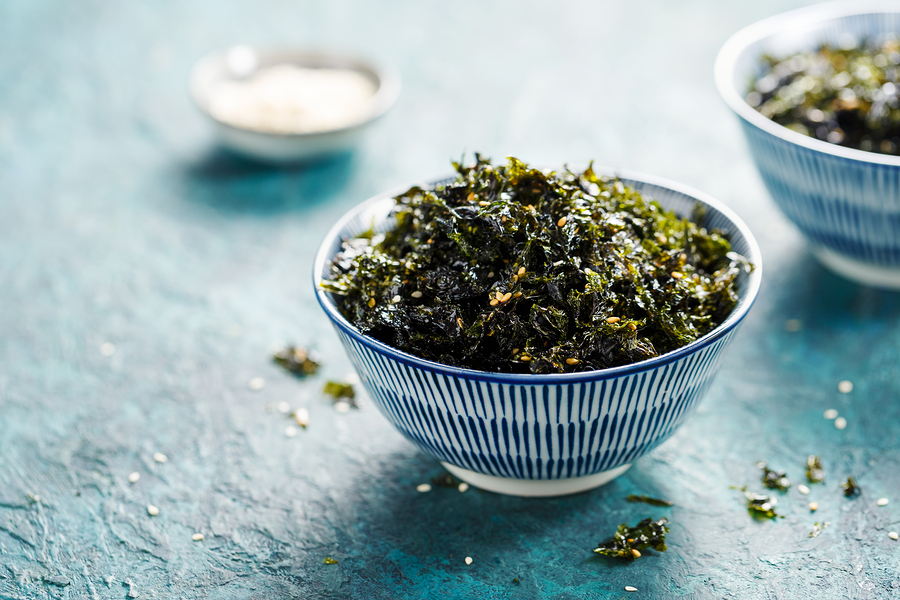
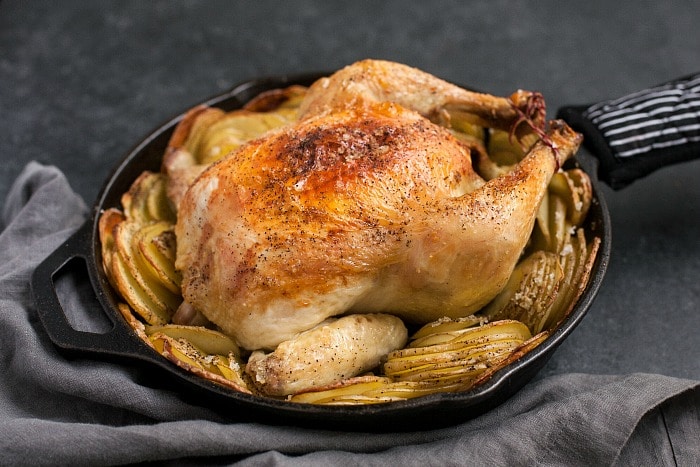 Tyrosine
Tyrosine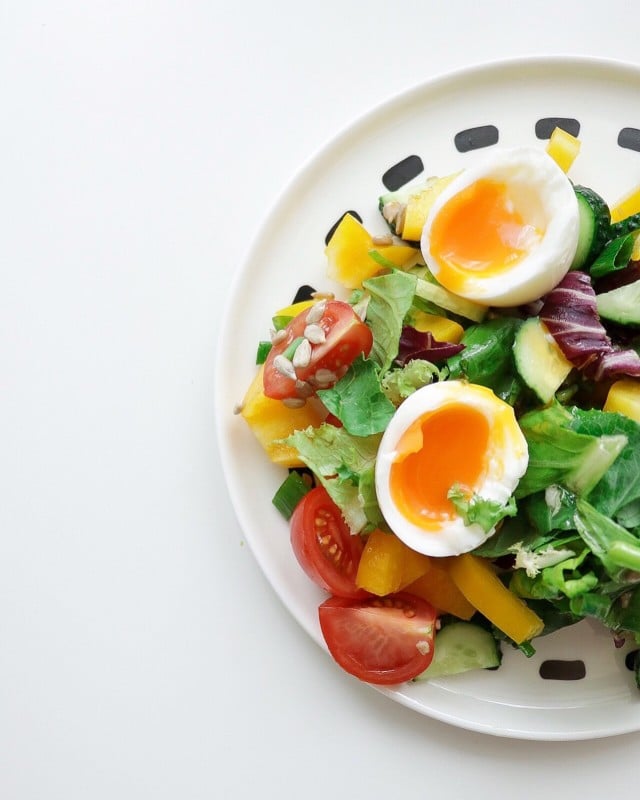 Iron
Iron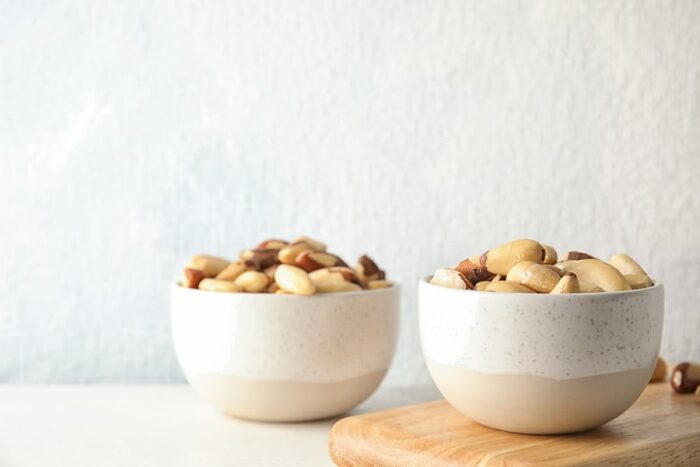
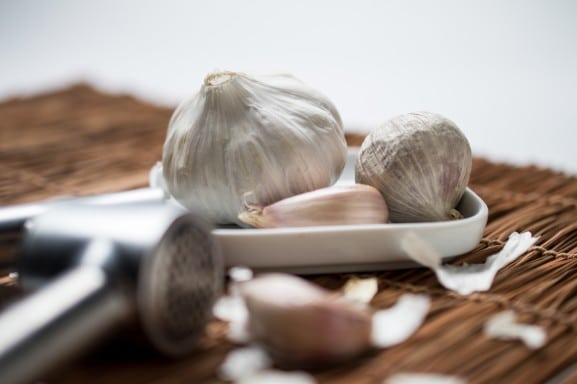
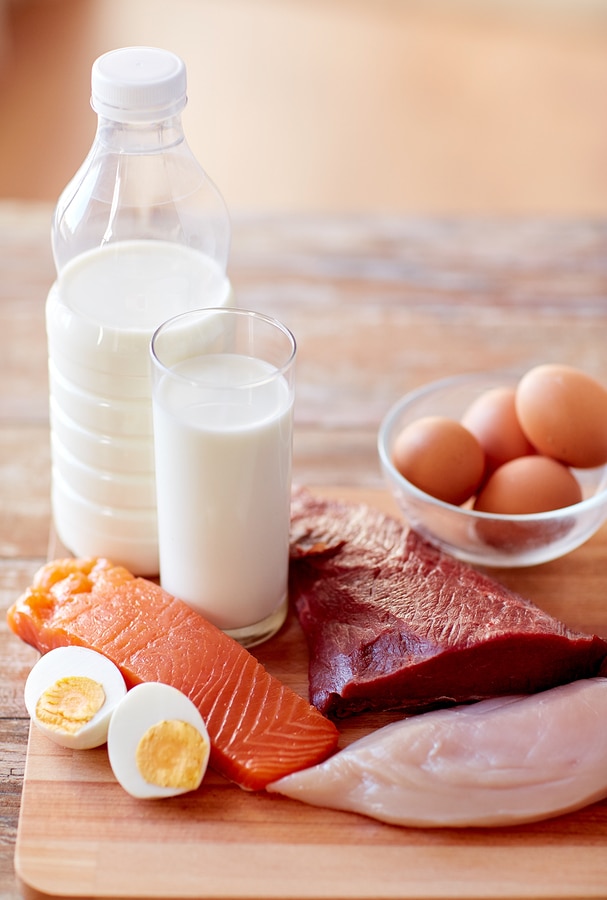
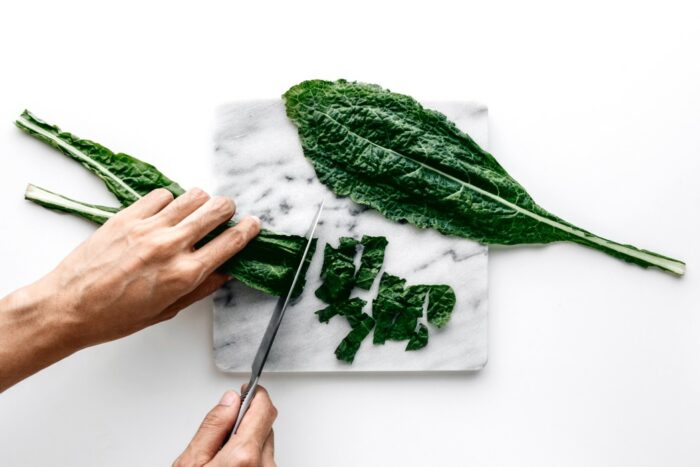
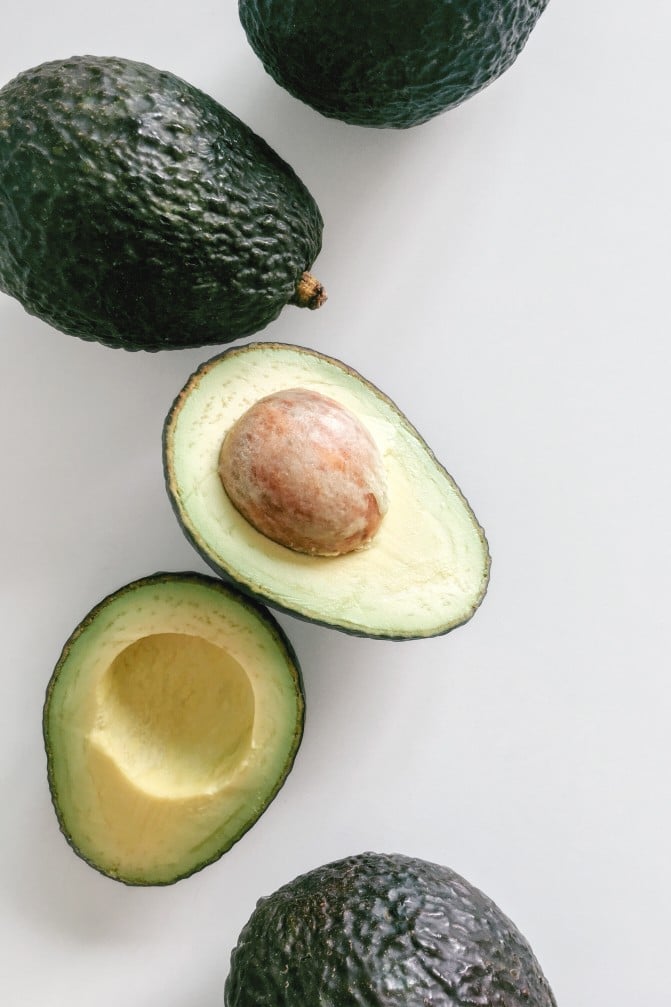 Magnesium
Magnesium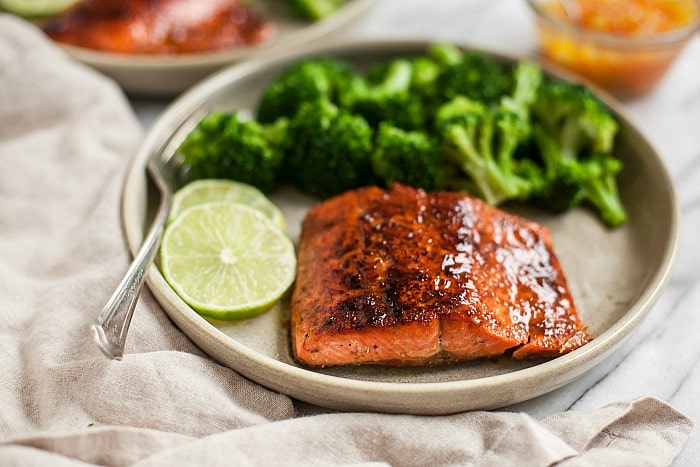 Vitamin D
Vitamin D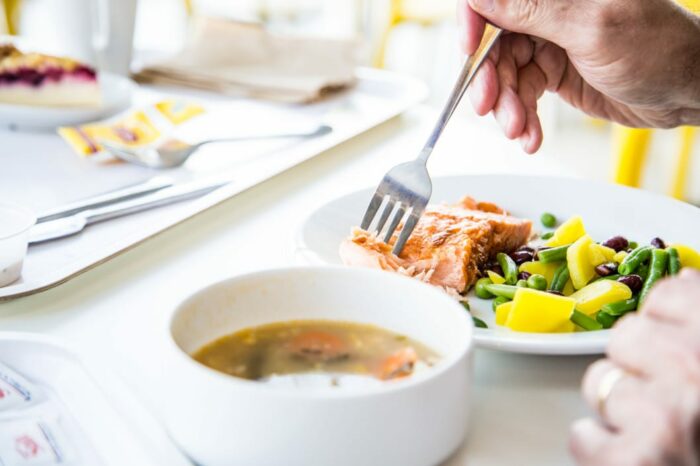

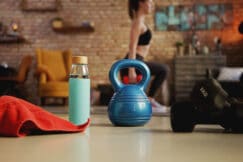

16 Comments